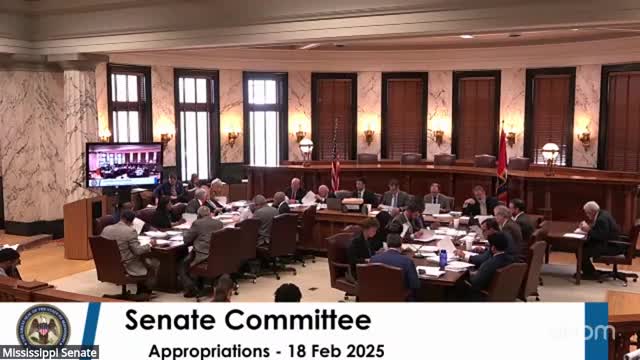Senate subcommittee advances Department of Corrections budget as senators press on rising medical-contract costs
Get AI-powered insights, summaries, and transcripts
Subscribe
Summary
The appropriations subcommittee advanced Senate Bill 3031, the Department of Corrections budget, while senators pressed agency representatives about a higher-than-expected medical-services contract and the use of one-time capital funds for facility upgrades.
The Senate appropriations subcommittee advanced Senate Bill 3031, the Department of Corrections budget for first action, which the subcommittee reported at $450,549,626 — a reduction of $12,000,520 from the prior year estimate, according to the committee packet.
Senators pressed agency representatives and subcommittee members about a recurring driver of correctional spending: a contracted medical-services agreement that officials said returned bids higher than anticipated. Committee discussion described the contract as a multi-year procurement with performance clauses; senators were told that the contract produced higher costs than previous expectations and that the appropriations request reflects that change.
Committee members sought further detail on whether the contract contains performance measures and opportunities to reduce costs. The subcommittee was told the vendor contract includes some mechanisms to recover funds, and that the contract term is relatively short to allow renegotiation when it next comes up for bid. A senator in the hearing estimated the medical contract in the range of about $128–130 million; committee members did not provide an exact line-item in the packet beyond noting contractual services had increased under the Legislative Budget Recommendation (LBR).
The floor exchange also covered longer-term questions about the state’s approach to corrections costs. Senators noted substantial, multi-year spending on DOC over the past six years and asked whether investments in facility upgrades, workforce development and reentry programs — which the subcommittee has funded in part with American Rescue Plan Act (ARPA) dollars and one-time capital improvements — will reduce recurring outlays. Subcommittee members said recent appropriations included onetime capital for locks, HVAC, generators and water/sewer work and cited workforce-development efforts inside the Department of Corrections intended to support reentry.
On the question of federal matches, senators asked whether Medicaid or waiver options could offset medical costs for the incarcerated population. Committee discussion indicated prior efforts did not secure Medicaid coverage for this population under existing legislation, but members said they are tracking opportunities for federal matches and waivers that might reduce state spending in future cycles.
Senate Bill 3031 was advanced on a title-sufficient, do-pass motion and will move toward the chamber’s floor for further action.
